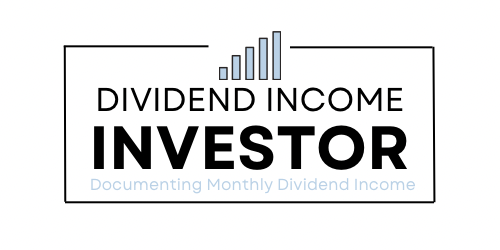Where to learn about investing — Find out how to learn stocks and investment information. Self manage your portfolio and cut down on fees. I am not a licensed advisor and this article is not investment advice. This article may contain affiliate links.
Are you thinking of self managing your investment portfolio instead of paying ridiculous fees?
It’s totally possible to self manage your investments.
But to manage your portfolio properly, you have to put in the work. You must know what you are doing if you plan to select your own stocks. Otherwise, you are better off investing in the S&P 500.
In this post, I will show you where to learn about investing so you can self manage your portfolio and cut down on outrageous investment fees.
Let’s dive in.

Where To Learn About Investing
There’s a group of suits out there that want you to think it’s too difficult to self manage your portfolio.
They are offended by the very idea that someone could figure out how to invest for themselves.
Of course, it’s entirely possible to beat 90% of these suits just by investing in the S&P 500.
But if you plan to buy individual stocks, you need to know where to learn about investing.
Investing is not just an opinion based on where an industry will head, it’s not just based on the stock price, and it’s not just buying what’s popular. In fact, buying what’s popular is likely the opposite of what investors should do.
Anyways, here is where to learn about investing.
Where To Learn About Investing

Read Books On Investing
One of the best ways to learn about investing is to read investing books.
Books will teach you about ways to invest and how to analyze stocks.
If you are completely new to the idea of investing, you could start with Rich Dad Poor Dad to get a sense of acquiring assets instead of liabilities.
Then I’d suggest The Intelligent Investor by Ben Graham to understand value investing. This is pretty much the best book on investing ever written.
Furthermore, I would suggest reading One Up On Wall Street from Peter Lynch.
Finally, I’d recommend reading The Psychology Of Money by Morgan Housel to understand what kind of investor you want to be.

Read & Listen To News On Stocks
After you’ve read a bunch of books on investing, you should begin reading and listening to news on stocks.
You will begin to pick up on some of the language you read about in the books and be able to put it together better.
Also, you will start to get stocks ideas and a sense for how the market reacts to news. I usually watch CNBC videos on YouTube.
To read news on stocks, create a watchlist in one of the stock apps and then check out news related to your stocks. Or search for news related to stocks you are interested in online.
Related Post: Best Stock Apps: 4 Must-Have Apps For Tracking Stock Prices
Open A Practice Investment Account
After reading books on investing and listening to news on stocks you’re interested in, you’re probably salivating at the idea of investing now. You probably think you will start investing and naturally be the next Warren Buffett.
To quench your early craving to invest, open a practice investment account to learn how to trade.
A practice account is an investment account with fake money that you can use to buy and sell stocks. RBC Direct Investing offers practice accounts here.
By trade, I mean buy or sell stocks.
Also, a practice account is a great way to get a feel for how the market fluctuates.
Read Earnings Reports
So, you’ve probably got a list of stocks you want to invest in by now.
Before you invest, you should start reading earnings reports.
Read about analysts expectations of earnings and then read their earnings report to understand how the business is performing.
Listen to earnings calls to hear comments from the CEO and high profile staff.
Get acquainted with the idea of reading quarterly earnings reports for every company you invest in.
Use A Stock Screener To Search For Stocks
Based on what you learned from reading about investing, test out a stock screener and use filters to search for the kind of stocks you want to own.
Using a stock screener is a great way to find stocks and see how your stock ideas stack up in comparison to other stocks.
If you are lucky, you will find a stock that stands out.
Compare & Analyze Companies
If you compare and analyze 100 different companies, one of them will stand out as superior to the rest.
To compare and analyze different stocks, I like to use a combination of different investment websites.
In the early stages of the process, I use Morningstar to quickly look at 10 year dividend growth and to find out the dividend payout ratio.
After I narrow it down to stocks I want to buy, I will visit the company websites and my broker to research further.
Frankly, in this day and age, research is done for you. Most brokers offer research reports with price targets and fair value estimates. All information is readily available if you know where to find it.
If you constantly compare and analyze companies, eventually the good ones will begin to stand out.
Related Post: Best Websites For Stock Research: 6 Websites To Analyze Stocks
Listen To Alternative Ways To Invest
Having a strong opinion on an investment style based on experience and proven data is one thing.
But no matter what stage of an investor you are, you have to be open to different investment ideas.
By listening to other investors and trying to understand their investment strategies, you can improve your own.
Plus it’s a way to test out your own investment strategy. If it’s a good enough strategy, it will stand.
Study & Listen To The Best Investors Of All Time
If you want to learn something in life, the best way is to study the best.
As such, investors should learn from the best investors of all time.
Listen to what they say and look out for information on what they are currently investing in.
Study the history of how they got to where they are and how long it took.
Take pieces of advice from each of them and put it together to form your own strategy.
Related post: Best Investors Of All Time – The 10 Greatest Investors Ever (Historically and Modern)
Observe How The Market Reacts To News & Events For More Than A Decade
Of course, the best teacher of all is experience.
There’s nothing that can replace being in the market for a decade or more.
The more cycles and swings you see, the more you will understand the stock market.
Living through a significant market correction could be one of the best teachers of all.
Invest
Once you have put in the work, chosen an investment strategy, and you feel comfortable to invest, start investing.
Even though the practice account is a great tool for learning, there’s nothing like having skin in the game.
It could be nerve wracking at first to see your money go up and down each day. Just remember to keep a long-term time frame in mind. Aim to hold investments for 5 to 10 years and accept that the market will have significant swings.

Where To Learn About Investing — Final Thoughts
It’s entirely possible to self manage your investment portfolio if you are willing to put in the work required to learn.
Don’t let anyone tell it’s not.
And if you are not willing to put in the work, you can still invest in an S&P 500 index fund like VSP and outperform most mutual funds and advisors.
If you are willing to put in the work, the research is available if you know where to look.
Moreover, if you know where to learn about investing and if you stick to stocks you understand, you might just find yourself outperforming the market.
Similar Articles On Investing To Check Out
Best Investors Of All Time – The 10 Greatest Investors Ever (Historically and Modern)
Self Directed Investing: Pros And Cons Of Self Directed Vs Advisor
Best Investing Books To Read: 11 Books To Be A Better Investor
S&P 500: How To Buy It And Turn $10,000 Into $420,000
Best Stock Apps: 4 Must-Have Apps For Tracking Stock Prices
Best Websites For Stock Research: 6 Websites To Analyze Stocks
I am not a licensed investment or tax adviser. All opinions are my own. This post may contain advertisements by Monumetric. This post may also contain internal links, affiliate links to BizBudding, Amazon, Bluehost, and Questrade, links to trusted external sites, and links to RTC social media accounts.
Connect with RTC
Twitter: @Reversethecrush
Pinterest: @reversethecrushblog
Instagram: @reversethecrush_
Facebook: @reversethecrushblog
Email: graham@reversethecrush.com


 Savvy RRSP Withdrawal Strategy
Savvy RRSP Withdrawal Strategy
